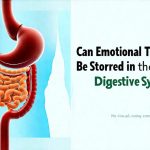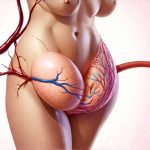The intricate connection between our minds and bodies is often underestimated, yet it’s foundational to overall well-being. We frequently treat mental and physical health as separate entities, but emerging research consistently demonstrates a profound bidirectional relationship – meaning each significantly impacts the other. This interplay becomes particularly evident when examining digestive health, an area deeply affected by stress and mental state. Chronic stress isn’t just ‘in your head’; it manifests physically, often starting with disruptions to our gut function, leading to a range of uncomfortable and potentially serious issues. Understanding this link is crucial for holistic health management and moving beyond simply treating symptoms to addressing the root causes of digestive distress.
Our digestive system, far from being merely a food processing unit, is now recognized as a complex ecosystem teeming with trillions of microorganisms – collectively known as the gut microbiome. This microbial community plays a vital role not only in nutrient absorption but also in immune function, neurotransmitter production, and even mental health itself. The gut-brain axis, a sophisticated communication network linking the digestive system to the brain, is where these connections truly come alive. When we experience stress or emotional turmoil, it triggers physiological changes that ripple through this axis, affecting everything from stomach acid production to intestinal motility, ultimately impacting the delicate balance of our gut microbiome and potentially leading to digestive issues.
The Gut-Brain Axis: A Two-Way Street
The gut-brain axis isn’t a one-way street; it’s a dynamic communication system operating in both directions. Signals travel from the brain to the gut, influencing digestion and immune responses, but equally important signals originate in the gut and are relayed back to the brain, impacting mood, cognition, and even behavior. This constant exchange happens through several pathways:
- The vagus nerve, a major cranial nerve directly connecting the gut and the brain.
- The enteric nervous system (ENS), often called the “second brain,” located within the walls of the digestive tract.
- The hypothalamic-pituitary-adrenal (HPA) axis, our primary stress response system.
- Microbial metabolites produced by gut bacteria that can influence brain function.
Stress activates the HPA axis, releasing hormones like cortisol. While initially helpful in a crisis, chronic activation leads to imbalances that disrupt gut motility, permeability and microbiome composition. A compromised gut barrier – sometimes referred to as “leaky gut” – allows undigested food particles and toxins to enter the bloodstream, triggering immune responses and further exacerbating inflammation throughout the body, including the brain. This can contribute to a vicious cycle where digestive issues worsen mental health symptoms and vice versa. The health of your gut significantly influences your brain, and conversely, your mental state profoundly affects your digestive function.
Furthermore, the gut microbiome itself plays a surprising role in neurotransmitter production. For instance, approximately 90% of serotonin – often called the “happy hormone” – is produced in the gut. Disruptions to the gut microbiome due to stress can therefore impact serotonin levels and contribute to mood disorders like anxiety and depression. This underscores the importance of nurturing a healthy gut microbiome for both physical and mental wellbeing.
Stress & Common Digestive Symptoms
Stress doesn’t always manifest as dramatic, life-altering conditions; it frequently presents as everyday digestive discomforts. These symptoms are often dismissed or treated symptomatically without addressing the underlying cause – chronic stress. Here’s a look at how stress can trigger common digestive problems:
- Irritable Bowel Syndrome (IBS): Stress is a well-recognized trigger for IBS flare-ups, exacerbating symptoms like abdominal pain, bloating, gas, diarrhea, and constipation. The altered gut motility and increased visceral sensitivity associated with stress play significant roles in IBS pathology.
- Functional Dyspepsia: This condition involves chronic indigestion without any identifiable structural or biochemical abnormalities. Stress can disrupt gastric emptying, increase acid production (or paradoxically decrease it in some cases), and contribute to the sensation of fullness or bloating.
- Inflammatory Bowel Disease (IBD): While IBD is an autoimmune condition with complex causes, stress can significantly worsen symptoms and trigger flare-ups in individuals already diagnosed with Crohn’s disease or ulcerative colitis. Stress impacts immune function and increases inflammation, contributing to the severity of IBD.
Managing stress effectively becomes paramount for those experiencing these conditions. Techniques like mindfulness meditation, deep breathing exercises, yoga, and regular physical activity can help regulate the HPA axis and reduce cortisol levels, providing relief from digestive symptoms. It’s also important to remember that diet plays a crucial role; certain foods can exacerbate stress-related digestive issues, while others can be supportive.
The Microbiome & Mental Wellbeing
The gut microbiome isn’t just about digestion—it’s increasingly recognized as a key player in mental health. Different bacterial species produce different metabolites that influence brain function and neurotransmitter levels. A diverse and balanced microbiome is generally associated with better mental wellbeing, while imbalances – known as dysbiosis – can contribute to anxiety, depression, and other mood disorders.
- Probiotics & Prebiotics: Introducing beneficial bacteria (probiotics) through fermented foods or supplements, alongside feeding those bacteria with fiber-rich foods (prebiotics), can help restore microbiome balance and improve mental health outcomes.
- Dietary Influence: A diet high in processed foods, sugar, and unhealthy fats can disrupt the microbiome, leading to inflammation and impaired brain function. Conversely, a diet rich in fruits, vegetables, whole grains, and fermented foods promotes a healthy gut microbiome.
- Stress Reduction: As mentioned previously, reducing stress is vital for maintaining a balanced microbiome because cortisol negatively impacts microbial diversity.
Cultivating a thriving gut microbiome isn’t just about taking probiotics; it’s about creating an environment where beneficial bacteria can flourish. This involves dietary changes, stress management techniques, and avoiding unnecessary antibiotic use which can disrupt the delicate balance of gut flora.
Practical Steps for Digestive & Mental Health Harmony
Taking a proactive approach to both digestive and mental health is crucial. Here’s a step-by-step guide:
- Stress Management: Incorporate regular stress-reducing activities into your routine – mindfulness, meditation, yoga, deep breathing exercises, spending time in nature, or pursuing hobbies you enjoy.
- Dietary Adjustments: Focus on a whole-food diet rich in fiber, fruits, vegetables, lean protein, and healthy fats. Limit processed foods, sugar, caffeine, and alcohol. Consider identifying food sensitivities that may be contributing to digestive symptoms.
- Gut Support: Explore incorporating fermented foods (yogurt, kefir, sauerkraut, kimchi) into your diet or consider a probiotic supplement after consulting with a healthcare professional. Ensure adequate fiber intake to nourish beneficial gut bacteria.
- Hydration: Drink plenty of water throughout the day to support optimal digestion and overall health.
- Mindful Eating: Pay attention to your body’s hunger and fullness cues, eat slowly, and savor your meals. This can reduce stress during mealtimes and improve digestion.
- Seek Professional Help: Don’t hesitate to consult a healthcare professional if you are experiencing persistent digestive issues or mental health concerns. A holistic approach that addresses both aspects is often the most effective path to wellbeing.
Ultimately, recognizing the interconnectedness of gut health and mental wellbeing is the first step towards a more balanced and fulfilling life. By prioritizing both physical and emotional health, we can create a foundation for lasting wellness.


















